Database Security: PCI Compliance and Business Impact Report
VerifiedAdded on 2022/12/20
|5
|817
|1
Report
AI Summary
This report delves into the critical aspects of database security, with a specific focus on Payment Card Industry (PCI) compliance. It highlights the importance of securing user credentials and adhering to PCI standards to protect sensitive financial data and build customer trust. The report outlines the technical procedures, such as implementing firewalls and other security measures, that organizations use to achieve operational standards. It emphasizes the consequences of non-compliance, including penalties and legal actions, while also detailing the steps required for PCI compliance, such as self-assessment questionnaires and vulnerability scans. Furthermore, the report underscores the positive impact of PCI compliance on business reputation and efficiency, particularly for large-scale retailers, and stresses the role of database administrators in ensuring effective implementation of these security measures to prevent network and physical attacks. The report draws on the provided references to support its findings, offering a comprehensive overview of database security and its implications for businesses.
1 out of 5
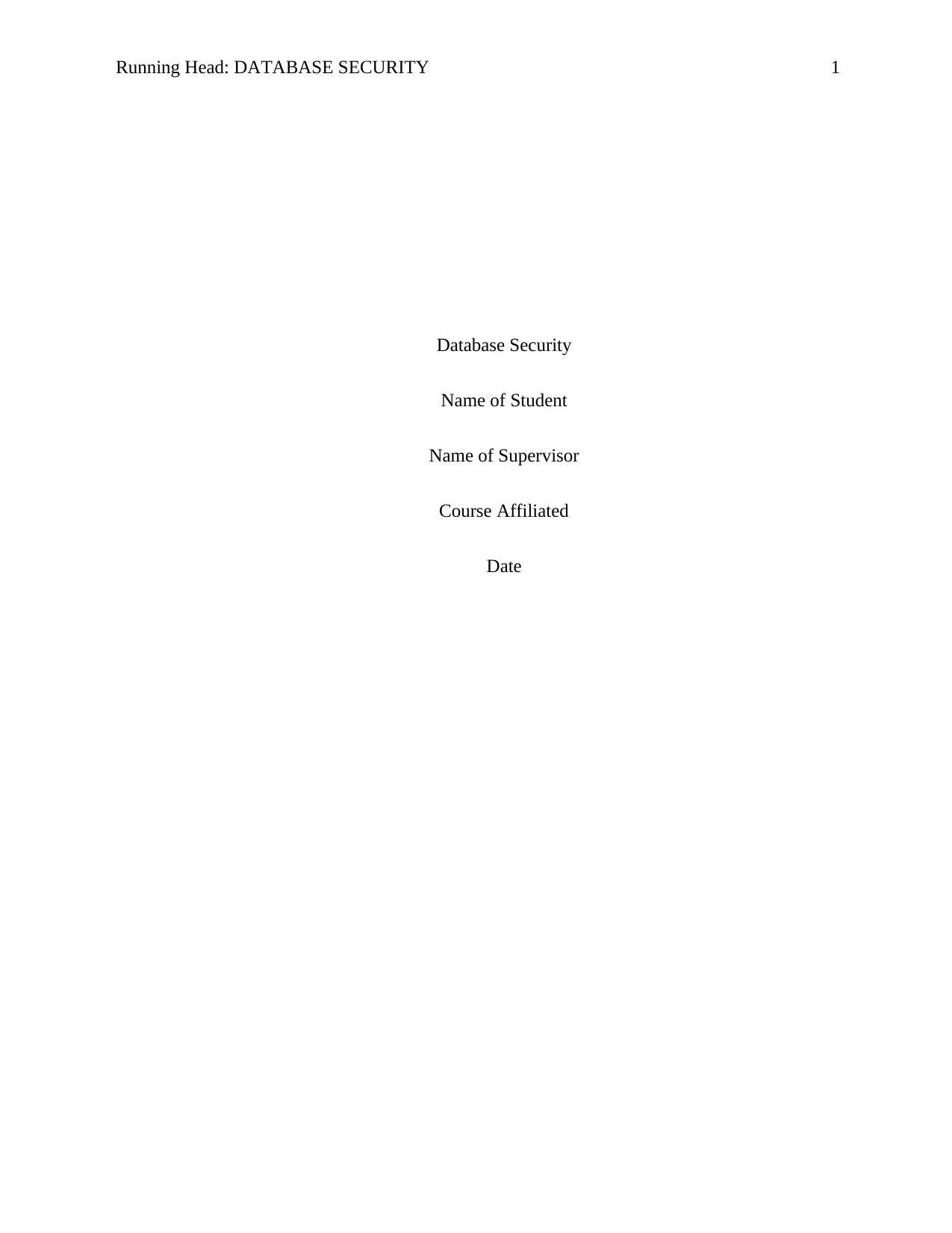
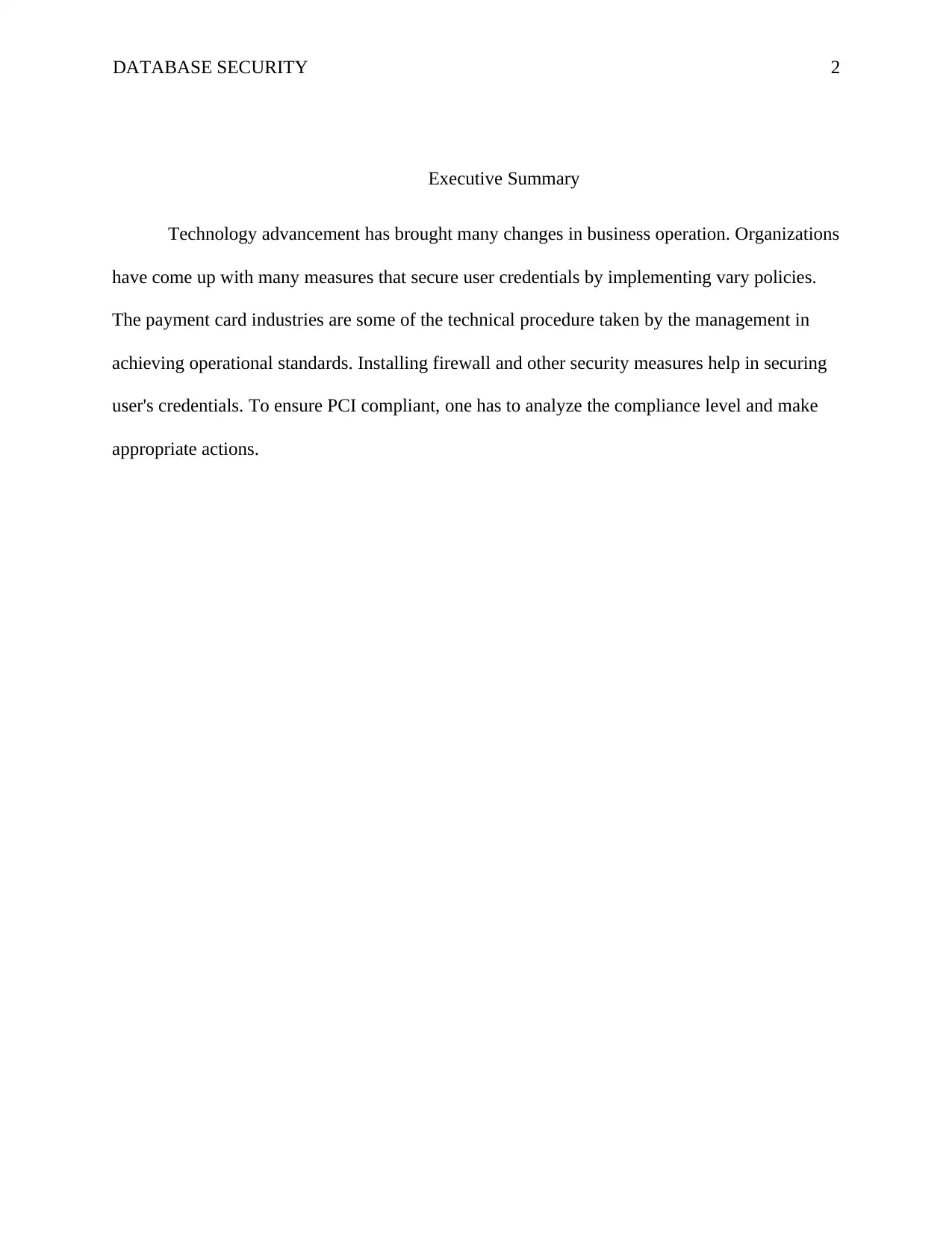
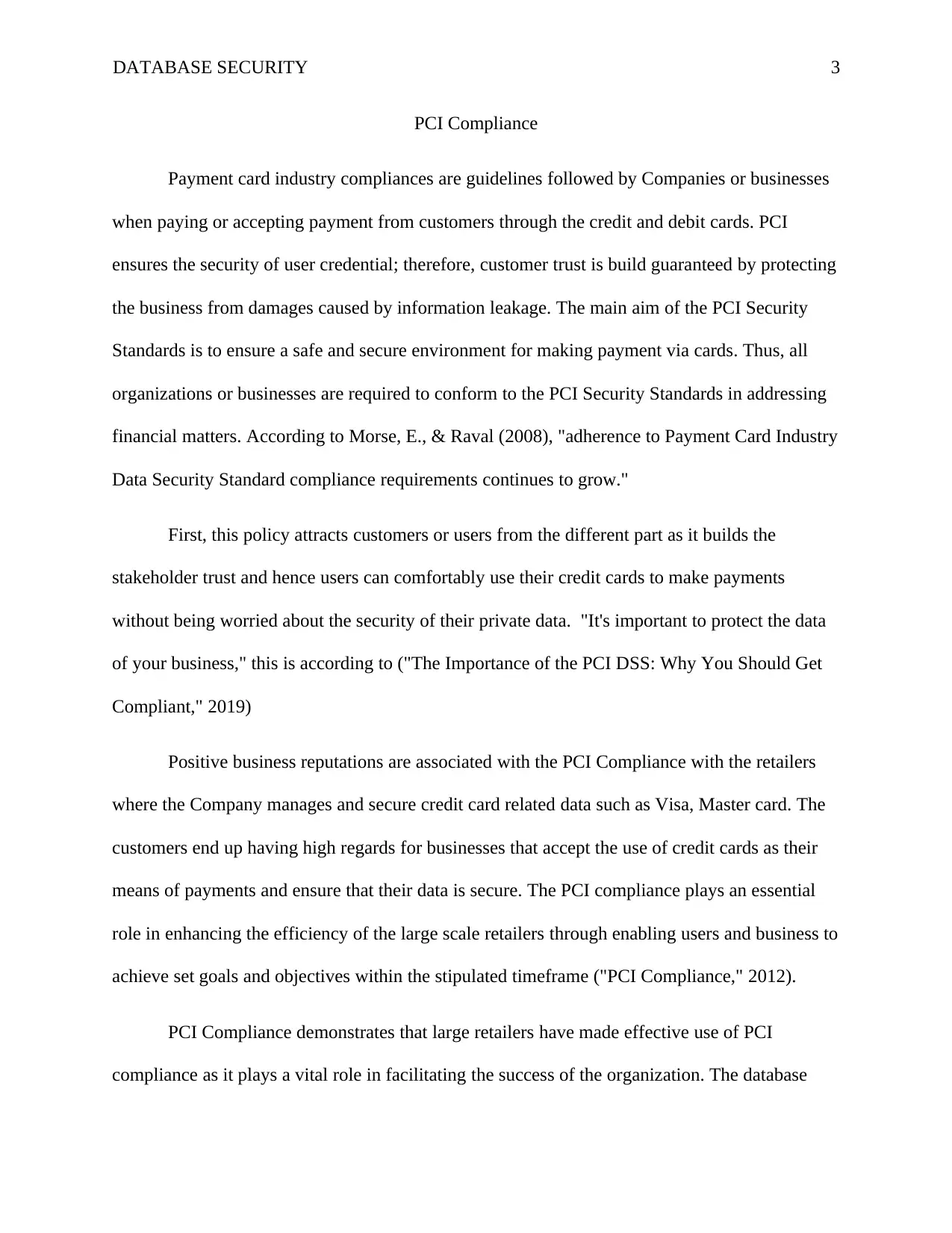

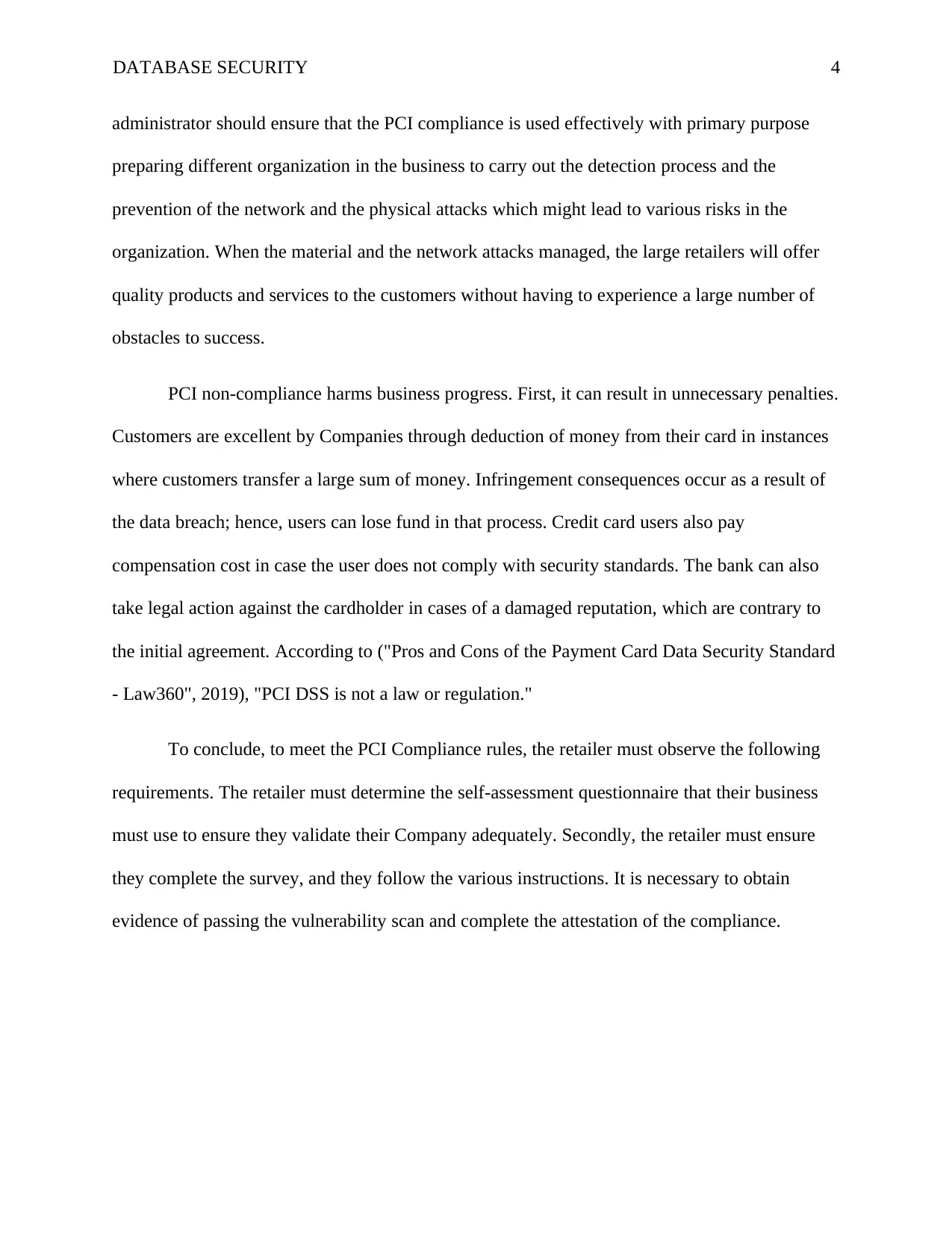
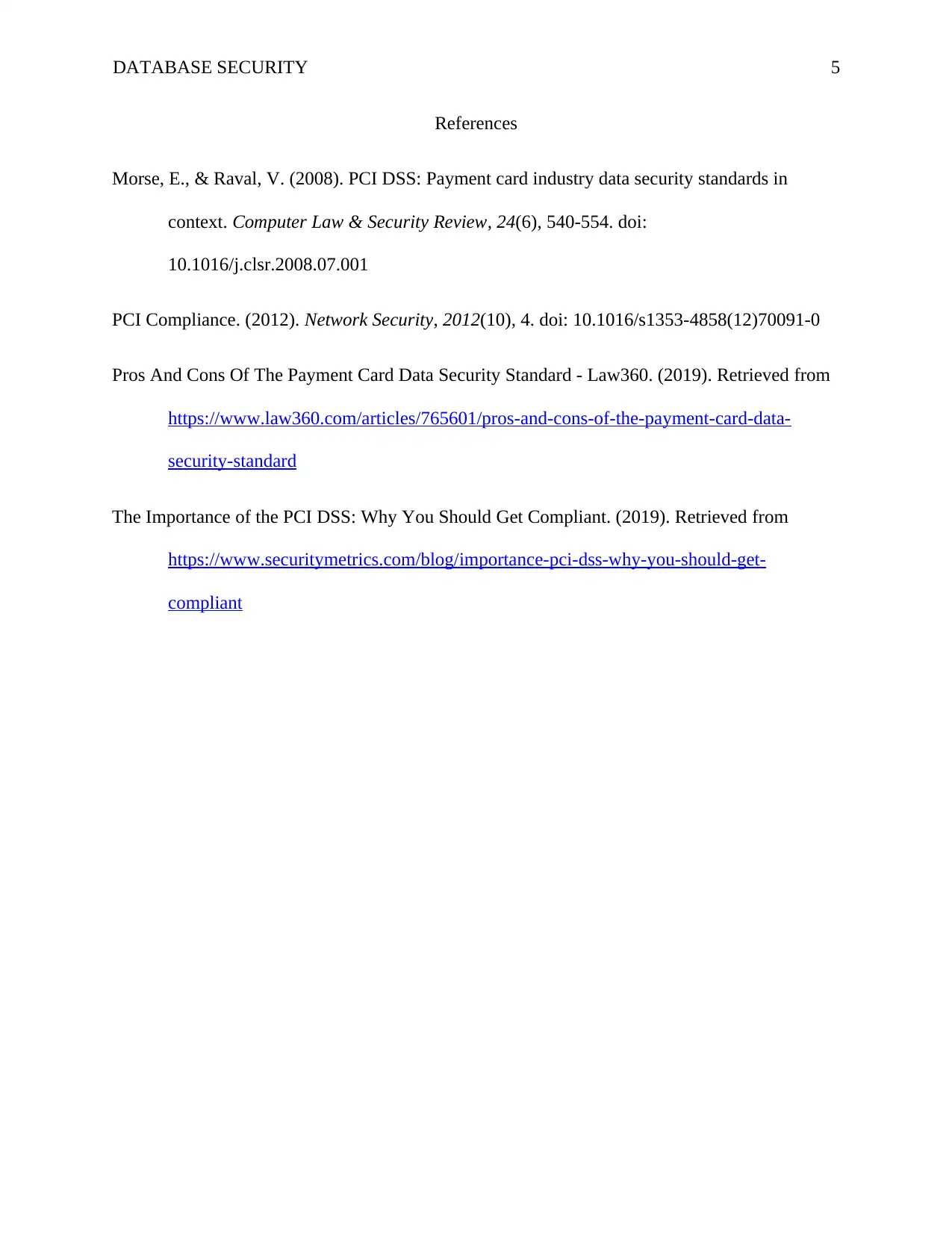






![[object Object]](/_next/static/media/star-bottom.7253800d.svg)